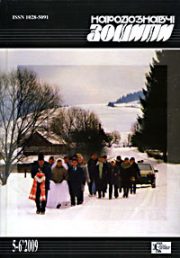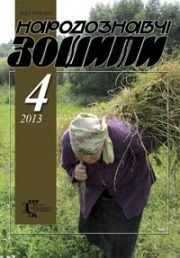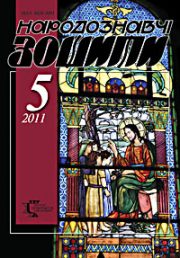The Ethnology Notebooks. 2018, 1 (139), 10–13
UDK 39-057.4-027.233.2(477)”19/20”С.Павлюк
DOI https://doi.org/10.15407/nz2018.01.010
Received 14.01.2018
SUCTION INTEGRATES: STEPAN PAVLIUKA’S SCIENTIFIC AND ORGANIZATIONAL MODELS
ORCID ID: https://orcid.org/0000-0003-1509-5367
Yatsiv Roman Myronovych, Vice-rector on the scientific work
of the Lviv National Academy of Arts,
Ph.D., associate professor,
Honored Worker of Culture of Ukraine.
Kubiiovycha Street 38, 79011, Lviv, Ukraine.
Contacts: e-mail: jaciv@ukr.net
Abstract. The article deals with the collection of scientific and scientific-organizational activities of Stepan Pavliuk, a scientist-ethnologist, socio-cultural and political statesman, and the permanent director of the Institute of Ethnology of the National Academy of Sciences of Ukraine. His great work as an organizer and as a researcher of ethnic culture is presented in the structure of models — the most significant thematic-semantic areas of scientific effort or forms of organizational initiatives. The significance of S. Pavliuk’s reformation of the system of academic humanitarian science, in particular, the formation of the Lviv branch of ethnography, is emphasized. Among the priority scientific problems of the scientist is the problem of ethnogenesis, the complexes of customs in ethno-regions of Ukraine, the integrity and identity of Ukrainian culture.
Keywords: Stepan Pavliuk, folk studies, ethnology, ethnogenesis, academic science, ethnonational tradition, traditional culture, spiritual value system, scientific model, organizational model.
REFERENCES
Pavliuk, S.P., Pylyp’iuk, V.V. (2017). Zoranyj perelih zasiianyj liubov’iu do Vitchyzny. L’viv: Svitlo i tin’ [in Ukrainian].






